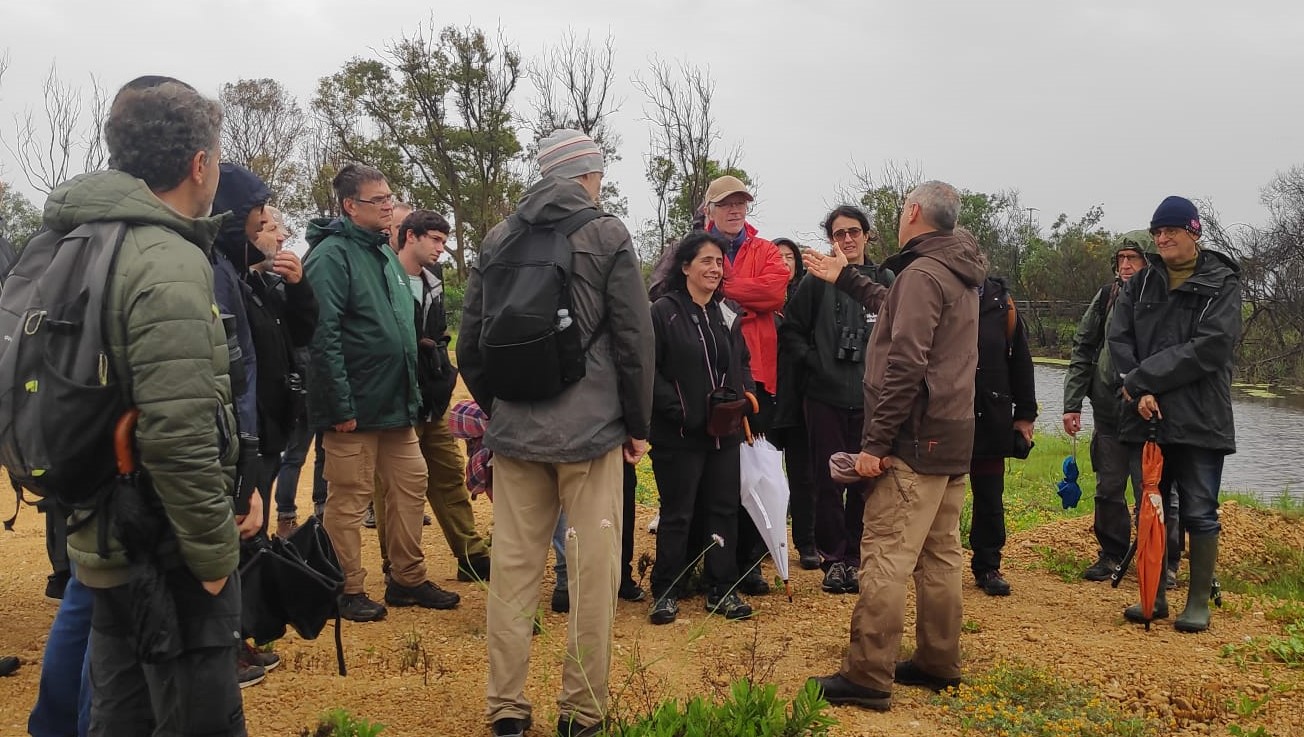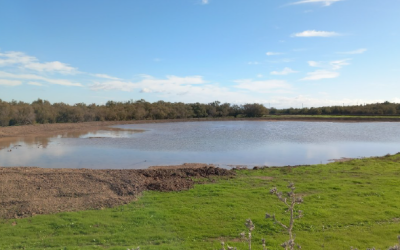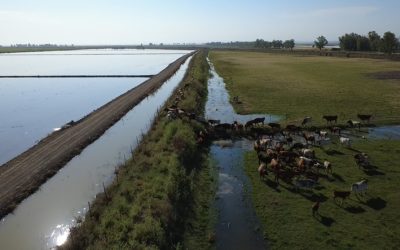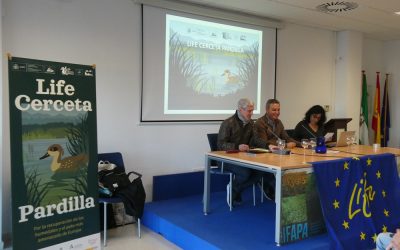A total of 36 participants from entities and administrations from Spain, Italy, France, Portugal, Morocco, Tunisia and Algeria, have attended, in the Sicilian city of Ragusa (Italy), a workshop to improve the knowledge, habitat management and conservation of the marbled teal throughout the Mediterranean arc.
The workshop has been jointly organized by the LIFE Cerceta Pardilla and LIFE Marbled Duck PSSO projects, between the 24th and 26th of March with the aim of updating the status of the species in the Mediterranean Arc countries, sharing the results and lessons learned in both LIFE projects and establishing coordination and communication mechanisms once these projects have finished.
ADVANCES IN MONITORING AND RESTORATION OF WETLANDS
Among the main issues addressed, the importance of monitoring the species in North African countries to understand the interrelationship between the different populations of this bird in the western Mediterranean, including Spain, was highlighted. In this sense, within the framework of the LIFE Cerceta Pardilla project, censuses have been carried out in recent years in Algeria, Morocco and Tunisia during the breeding and wintering seasons, which has made it possible to obtain new and valuable information, especially on the breeding population.
However, the continuity of this monitoring and the definition of a common census methodology are considered essential, especially in view of the scarcity of resources, which is why the LIFE Cerceta Pardilla project and the Ministry for Ecological Transition and the Demographic Challenge have offered GPS transmitters for use in these countries.

On the other hand, the workshop shared numerous experiences of wetland restoration in Italy, Spain and Portugal, many of which have had immediate positive results in terms of occupation and reproduction of the species. Among the difficulties identified were the availability and quality of water, as well as the long-term maintenance of the actions. In these experiences, the need to involve local actors through participation, dissemination and environmental education programs is underlined.
Crucial technical issues such as the control of exotic species, the management of reed beds to create open water areas, the responsible use of grazing and the need to protect spaces before they become degraded, especially in North Africa, have also been addressed.
The workshop also highlighted the usefulness of captive breeding as a tool to ensure conservation while addressing threats on the ground, such as predation or the health status of wetlands.
LONG-TERM CONSERVATION AND COOPERATION
In order to ensure the success of conservation initiatives, it is considered essential to establish cooperation mechanisms with key entities such as local NGOs, farms and livestock farms, administrations and hunters’ associations. One of the main challenges is to maintain their involvement in the medium term and to achieve stable agreements with public administrations.
As a result of the workshop, it has been agreed to create an international technical reference group on marbled teal to address different aspects of teal conservation, from population monitoring and habitat management to captive breeding and research. It has been proposed that the group should meet at least once a year to coordinate actions and share results among the participating countries.




